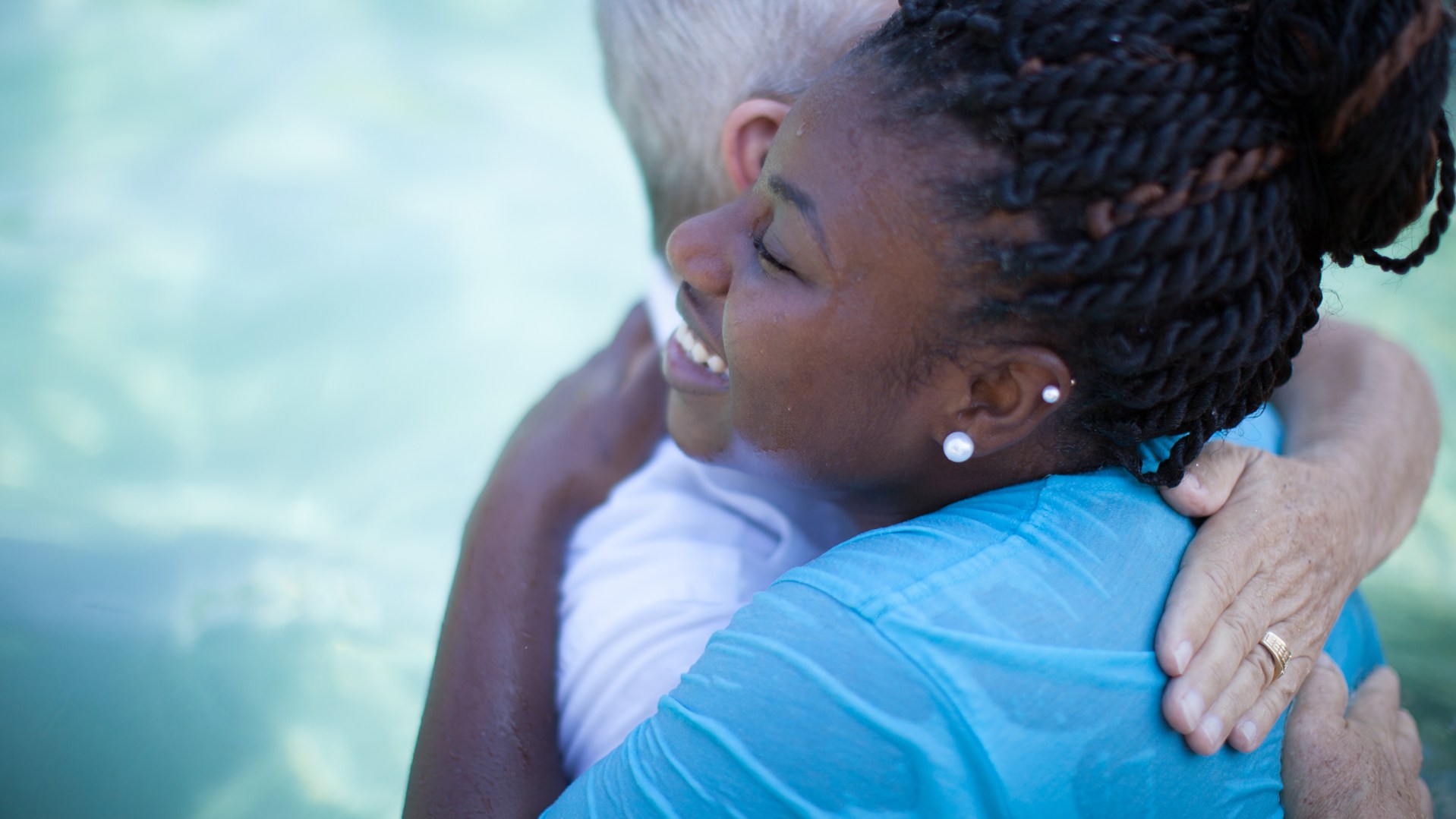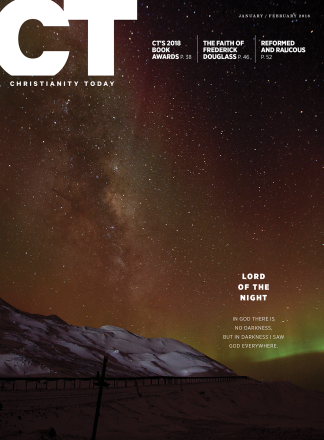The first time I heard the phrase “the waters that divide” as a way of describing baptism, I didn’t get the joke. It had never occurred to me to think that way. Admittedly, I was christened as a baby and then baptized at age 14, so in some ways, my own life embodies this “division.” Yet for all our disagreements on baptism, and for all the draconian ways in which our ancestors sometimes dealt with them (drowning, for instance), the most striking feature of the baptismal waters is not the way they divide but the way they unite.
Baptismal liturgies vary widely, and each makes its own contribution to our understanding of what baptism means. In my church, we baptize people by immersion in a tank. It draws attention to all sorts of things that baptism enacts: our plunging into and identification with Christ, the washing away of our sins, our drenching in the Spirit, our burial with Jesus in his death, and our rising again to new life in his resurrection.
At the same time, there is much we miss. We don’t pour or sprinkle, so we lose the imagery of anointing with the Spirit, of having him poured over us, of being sprinkled with the blood of the covenant. We don’t baptize in rivers, largely because rivers in London are very cold, so we lose the symbolism of what some church fathers called “living waters”—not to mention the image of our sins disappearing downstream, never to be seen again. We don’t have a font at the back of the church, so the weekly ritual of walking past baptismal water on your way to worship, with all that it says about identity and new creation, is absent. Reflecting on different methods of baptism can help us grasp different dimensions of its meaning.
My favorite example comes from 17 centuries ago. In his Mystagogic Lectures, Cyril of Jerusalem (313–386) describes how baptism works in his church. You face west, stretch out your hand like Moses at the Red Sea, and renounce Satan and all his works. You turn to face east—toward the sunrise—and affirm your belief in the Trinity. You proceed to the inner chamber, take off all your clothes (the old humanity), get anointed with exorcised oil (the overthrow of the powers of darkness), and go into the water three times (to identify with the Trinity and with the three days Jesus was buried). On coming out, you are anointed with oil on the forehead, ears, nostrils, and chest, representing the removal of shame, ears to hear, the fragrance of Christ, and the breastplate of righteousness. At last, you put on a set of new, white clothes before receiving your first Eucharist.
There are good reasons why we don’t use Cyril’s liturgy in my church (naked baptism being the most obvious). Yet I have a huge amount to learn from it. It shows what happened to me when I was baptized into Christ, even though almost none of those physical symbols were present. And the reason is simple: Despite all our differences in time, space, and culture, we still share one baptism. What it meant then, it still means now. We are all washed by the same God, immersed in the same Christ, and drenched in the same Spirit.
My house is 200 yards from the English Channel. I walk along the seafront all the time with my children, and I consider the unbroken water from Eastbourne, where I am now, to North America, where I was a few weeks ago. It strikes me as extraordinary: Every day, if they choose, Americans, Singaporeans, Nigerians, Indians, Brazilians, and Egyptians can step from their utterly different contexts into one massive, all-embracing body of water. On land, we are divided—by channels, mountains, national borders, and culture, to say nothing of our baptismal liturgies and theologies. But when we paddle in the surf, we are caught up in the same unbroken sea, defying earthly divisions and boundaries.
That’s what happens when men and women from every nation and generation are baptized. We are caught up into one, massive, all-embracing body of water, which defies earthly divisions and boundaries. We move from being isolated souls to united saints, from standalone individuals to members of one holy, catholic, and apostolic church. We become one body, with one Lord, one faith, one hope, and one baptism. The waters unite.
Andrew Wilson is teaching pastor at King’s Church London and author of the forthcoming Echoes of Exodus (Crossway). Follow him on Twitter @AJWTheology.
Do you agree? Disagree? Let us know here.










